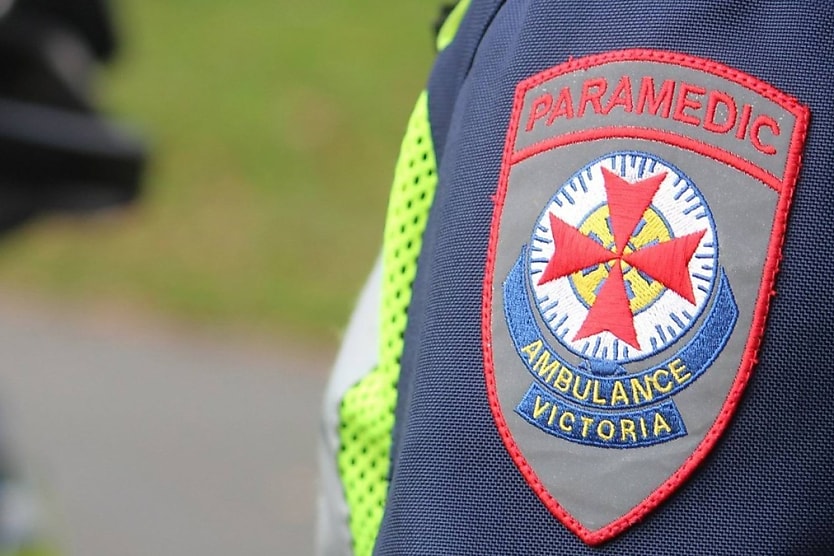Ex-paramedic shut out of report into ‘traumatic event’
SHARE THIS ARTICLE

A former Ambulance Victoria paramedic has been denied access to an internal report that investigated the alleged employment failures that led to his suicide attempt in 2020.
(Content warning: This article contains content that may be disturbing or distressing to some readers. Discretion is advised.)
Beginning his employment with Ambulance Victoria (AV) as a graduate ambulance paramedic in 2013, a recent applicant to the Victorian Civil and Administrative Tribunal expressed that it was his “lifelong dream” to become a paramedic.
Seven years into his tenure with Ambulance Victoria (AV), the applicant was left “devastated” after being informed by senior AV staff that his participation in the Graduate Ambulance Program would come to an end.
On 9 April 2020, three days after being informed of his role in the program ceasing, the applicant sent an email to the chief executive of AV, stating the following:
“This is my resignation letter, not from Ambulance Victoria, but life itself.”
His email correspondence to the chief executive included numerous concerns that the applicant had previously raised throughout his employment, which he claimed were not “adequately” addressed during his tenure with AV.
In the email, the applicant raised allegations of unresolved bullying, inadequacies in how his sick leave was managed, his return to work, and the overall mismanagement of his progression and performance supervision.
That same day, the applicant attempted suicide outside AV headquarters. After spending time in intensive care and duration in the hospital, the applicant “remarkably” made a full physical recovery.
VCAT review of report access
Two years later, the applicant filed a freedom of information (FOI) request, seeking a range of documents pertaining to his employment with AV, including emails, meetings, or memos from staff in relation to an investigation carried out by AV into the applicant’s suicide attempt.
After correspondence between the applicant and AV, some documents were cleared for viewing, while others were denied access to.
Eventually, the applicant applied for a review with the Victorian Civil and Administrative Tribunal (VCAT) over the access to a single internal report conducted by an external lawyer that investigated the employment concerns raised by the applicant in his email to the AV chief executive.
The VCAT hearing took place in March 2025, with AV filing evidence that the report was carried out to “provide Ambulance Victoria with legal advice about the concerns raised whether previous complaints had been addressed, and whether any further action was required …”
According to its own evidence, AV made a “deliberate decision” to engage a law firm to provide a report, so it would be covered by “legal professional privilege”. The report was only accessed by the chief executive and the executive director of people and culture.
“The dominant and sole purpose was to provide legal advice on actions taken – not to make a future decision,” said the senior lead at AV.
AV claimed that if the report was, in fact, released, the organisation would be “less likely” to commission reports to probe and identify gaps – which could lead to “outcomes in employment matters which we don’t learn from and improve from”.
They also denied that the report information was of public interest as it only addresses the applicant’s employment matters – and is not relevant to external processes involving review and scrutiny of Ambulance Victoria.
Allegations of biased investigations
The applicant claimed that since he was not consulted by the law firm that conducted the report, it sets a “dangerous precedent” for public sector entities to self-investigate alleged unlawful and unethical behaviour and misconduct, and then proceed to “hide” the findings.
He argued the report was, in fact, in the public interest due to AV’s previously “exposed” shortcomings in relation to a lack of safety, respect and trust found in a 2021 independent report – as well as recent inquiries into issues impacting AV’s management and functions.
According to the applicant, these matters produce the conclusion that there are “systemic issues” in the conduct of investigations by Ambulance Victoria “that are not isolated to him”.
On a personal level, the applicant claimed that the release of the report would assist in his treatment and recovery process, offering “him closure of a significantly traumatic event.”
In retort to the applicants claims, AV expressed that as a public sector entity “it is already subject to scrutiny” and that “there is a greater public interest in the report not being disclosed, because it is vital for the conduct of internal investigations that information and complaints be obtained and held in confidence”.
On top of that, AV reiterated that legal professional privilege is a “fundamental common law right”, stating that for public interest to override this privilege, it must be “of the highest order”, which applies to cases that concern “the community as a whole, and not an individual or group of individuals”.
This clarification engrossed the decision made by the tribunal, which despite labelling that AV’s rhetoric around being unable to “effectively undertake reviews” if the report was released as “curious,” and identifying that the applicants public interest case was “logical and well-articulated” – it could not override the legal professional privilege.
“The tribunal ultimately accepts that the submission of Ambulance Victoria on the public interest override is correct: that is, the asserted public interest is not sufficient to reach the high bar that must be reached to engage the override.
“The correct and preferable decision is, therefore, to affirm the decision of Ambulance Victoria not to release the report,” said the tribunal.
Help is available via Lifeline on 13 11 14 and Beyond Blue at 1300 22 4636.
Kace O'Neill
Kace O'Neill is a Graduate Journalist for HR Leader. Kace studied Media Communications and Maori studies at the University of Otago, he has a passion for sports and storytelling.

